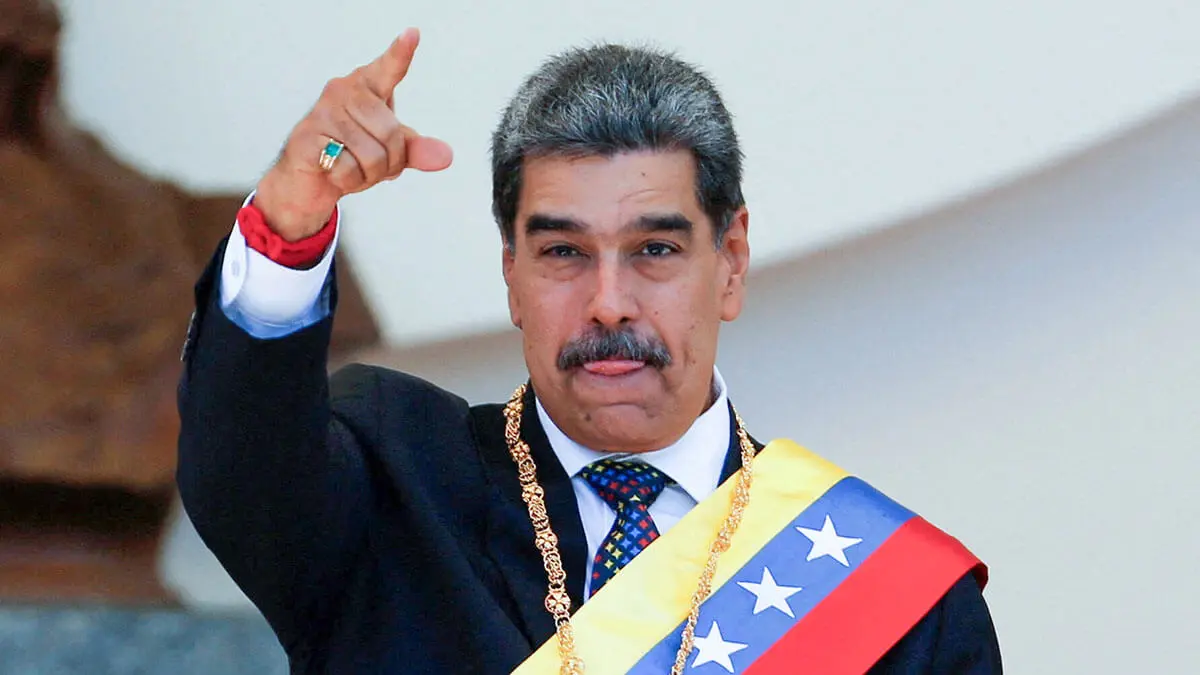Maduro faces Trump's marines

Three destroyers carrying 4,500 marines, several submarines and at least one US P-8 spy plane have been deployed off the coast of Venezuela, theoretically to prevent the incessant flow of drug trafficking to the United States. Several US institutions, including the State Department, believe that the so-called Cartel of the Suns is responsible for bringing huge quantities of cocaine, fentanyl and other drugs into the United States, which are physically and morally decimating the society now ruled by President Donald Trump.
The troop movement has been met with a mixture of hope and scepticism by the Venezuelan opposition, which has watched helplessly as the Chavista regime remains unperturbed and keeps Nicolás Maduro as president, after claiming victory in the 2024 presidential elections without showing any evidence to support this claim. This is why the White House considers him an illegitimate president and usurper of a power that should belong to Edmundo González, the winner of those elections, who is nevertheless in exile in Spain after the alleged mediation of former Spanish Prime Minister José Luis Rodríguez Zapatero.
Those who long for the fall of the Chavista regime, both inside and outside the country, are not sure that Trump will decide to launch a lightning military action to remove Maduro from the Miraflores Palace. The opposition, which initially believed that part of the armed forces, especially the officers, would join an insurrection, seems to have also come to the conclusion that Chavismo cannot be removed either through democratic elections or by multiplying protests, which the regime represses with virulence and without the slightest hesitation.
Analysts at the Pentagon and various US security agencies are scrutinising all possible scenarios, including that of provoking a major conflagration across the Latin American continent. Maduro, following the teachings of Cuban Castroism, has already mobilised 4.5 million citizens to the cry of ‘Missiles and rifles for the working class to defend our homeland!’. At the same time, Colombian President Gustavo Petro has set himself up as the spokesperson for the continent, stating that ‘any [military] operation that does not have the approval of the brother countries will be an aggression against Latin America and the Caribbean.’
Mexico and Brazil, which have significant differences with the current Trump administration, toned down their reaction considerably, although they did not hide the fact that they currently identify Venezuela with its Chavista regime and, of course, Cuba with its Castro regime.
Although it seems clear that both sides have in mind that US pressure may ultimately aim to change the continent's dictatorial regimes, according to statements made by the head of US diplomacy, Marco Rubio, both during the election campaign and shortly after taking office, the pretext being used for the moment is the fight against drug trafficking and organised crime. This line is reflected in gestures such as the confiscation of assets belonging to President Maduro worth some $700 million, mostly in the Dominican Republic, and the increase from $25 million to $50 million in the reward offered for information leading to Maduro's capture. To this end, Attorney General Pam Bondi, who signed the confiscation and reward order for the assets and the head of the man considered to be the leader of the Cartel de los Soles, coordinated with White House spokeswoman Karoline Leavitt, who declared that they were ‘prepared to spare no resources to bring those responsible for drug trafficking to justice.’
Leavitt's use of the plural extends the focus to other prominent figures in the regime, such as Interior Minister Diosdado Cabello and Army Chief Vladimiro Padrino, as well as the famous Rodríguez brothers, with Vice President Delcy also in the crosshairs of the Drug Enforcement Administration (DEA), which was expelled from Venezuelan territory in 2005. According to the current Bolivarian Minister of Foreign Affairs, Iván Gil, ‘since that date, Venezuela has achieved significant results against organised crime, with successful arrests, the dismantling of networks and effective control of borders and coasts’.
Statistical data held by the United States and Europe categorically refute this assertion. However, both Washington and Brussels do not entirely contradict the Chavista minister when he states that ‘the threat from the United States [because of its warships and marines] jeopardises the peace and stability of the entire region’.
In any case, for those who claimed that Latin America was of no interest to Donald Trump, all these moves show that, while it is not his top priority, the United States is not willing to let Russia and China impose themselves south of the Rio Grande.

